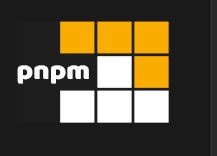
September 20, 2023 08:39 by
 Peter
PeterLet's look at the differences between npm, yarn, and pnpm in this blog. Package managers such as npm, yarn, and pnpm are extensively used in the JavaScript ecosystem to manage dependencies and packages for Node.js projects. They take different approaches and have distinct features, which can affect how they manage packages and interact with your project.

npm

npm is the default package manager for Node.js and is included with the installation of Node.js. It has a lengthy history and is frequently used in the JavaScript ecosystem. To store and distribute packages, npm makes use of a centralized package registry known as the npm registry. It adds a "node_modules" directory to your project and installs all project dependencies there.
// Install a package
npm install package-name
//Update a package
npm update package-name
// Remove a package
npm uninstall package-name
yarn

// Install a package
yarn add package-name
// update a package
yarn upgrade package-name
// Remove a package
yarn remove package-name
pnpm

pnpm is another package manager for Node.js projects. It aims to solve the issue of disk space usage by using a unique approach. Instead of creating a separate "node_modules" directory for each project, pnpm uses a single global package store and creates symlinks to the required packages in each project's "node_modules" directory. This can significantly reduce the amount of disk space used by your projects.
// Install a package
pnpm add package-name
// update a package
pnpm update package-name
//Remove a package
pnpm remove package-name
HostForLIFE.eu Node.js Hosting
HostForLIFE.eu is European Windows Hosting Provider which focuses on Windows Platform only. We deliver on-demand hosting solutions including Shared hosting, Reseller Hosting, Cloud Hosting, Dedicated Servers, and IT as a Service for companies of all sizes. We have customers from around the globe, spread across every continent. We serve the hosting needs of the business and professional, government and nonprofit, entertainment and personal use market segments.
